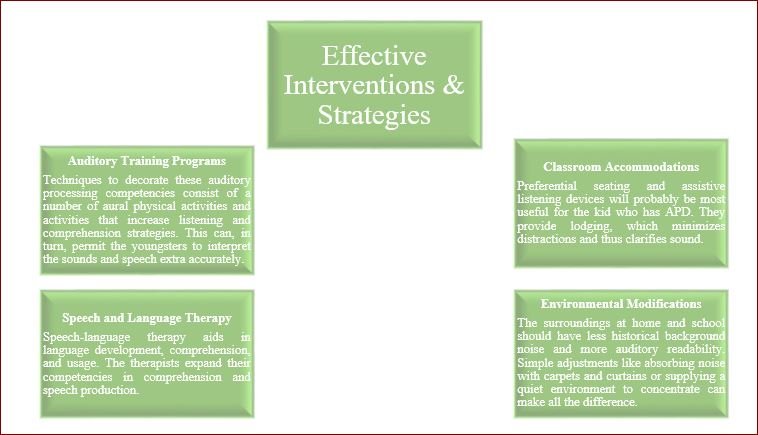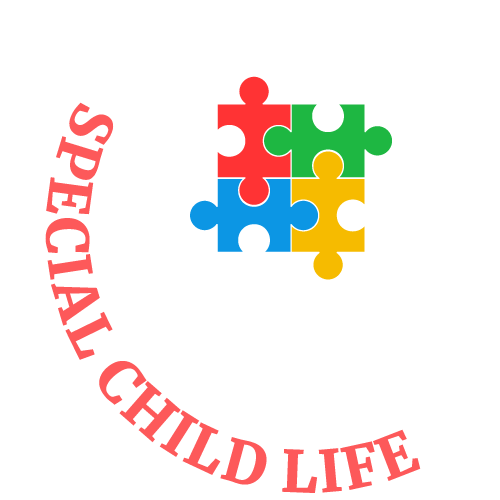Auditory Processing Disorder (APD): is in a noisy classroom, and your trainer is teaching, but you do not listen to the phrases. Or perhaps most of the time, you catch yourself announcing, “What?” when someone speaks, and you don’t hear or recognize the words. These can be Auditory Processing Disorders. It is a neurological situation whereby a character can be impaired in processing sounds. Their meanings, even as their hearing is regular.
It may be crucial to understand the early signs and symptoms of APD in your Special Children. Correct diagnosis will then allow for the possibility of proper guidance, and control could make lifestyles a great deal simpler for individuals who suffer from this pathologic circumstance. In this text, we can speak exactly about what APD is, common signs that you must not ignore, how it is diagnosed, and the pleasant manner to help those with APD. Now, let’s dive properly in and learn more about this misunderstood circumstance.
Understanding Auditory Processing Disorder
What is Auditory Processing Disorder?
Auditory Processing Disorder (APD): is an auditory dysfunction wherein the brain no longer method sounds ordinary. Those with APD ear-pay attention usually but have problems with the interpretation or sense of those sounds. This may be a problem in information speech when different noises are inside the environment. Imagine someone speaking, but their phrases all sound jumbled and now not pretty clear; that’s what it’s like to have Auditory Processing Disorder.
How Does What is Auditory Processing Disorder (APD) Affect Special Children?
APD can affect humans in distinct ways. Some may additionally have problems following conversations, while others may have problems reading or spelling due to trouble processing sounds. Processing difficulties can contribute to high school and other ordinary life problems. Early identification of APD would allow proper guides and sites in the area, making those duties extra conceivable.
Why is Early Recognition Important?
Early identity is critical for APD. The earlier, the better, as diverse interventions can occur. This will assist in enhancing the infant’s listening and language improvement abilities to equip them for easier survival in faculties and social settings. Otherwise, even a few youngsters with undetected APD may get left in the back of college and feature low shallowness. Therefore, the early signs and symptoms need to be known, and help must be sought early.
Knowing what APD is and how it pertains to those who have it will help us help those who suffer from it. Early recognition and intervention can be life-changing, making getting to know and speaking less of a normal battle.
Common Signs and Symptoms What is Auditory Processing Disorder
1. Difficulty Following Instructions
Persons with APD often have problems following verbal commands. This can lead to troubles in school and at home.
2. Problems with History Noise
A common criticism is trouble focusing there is a history of noise ranges that make it very tough to system and apprehend speech.
3. Misunderstanding too often
Many people with APD repeatedly ask for repetition in many instances or frequently say “what?” because they may lack the words as someone is talking. This makes the content material of the message difficult to piece together
4. Problems with Reading and Spelling
Literacy is hindered due to the fact phonetic processing interferes with them. Reading and spelling end up pretty tough due to the fact the processing of the sounds does now not seem to paintings right
5. Listening Skills Poor
People with APD might also appear disinterested listeners and regularly avoid being attentive to the speaker because their brains cannot process the noises.

Diagnosis of Auditory Processing Disorder (APD)
Assessment Process
To diagnose APD, exams that gauge how a person’s mind techniques sound need to be carried out. An audiologist uses several subsequent types of auditory testing to evaluate sound listening talents. The questionnaires about discovered behaviors completed by parents, teachers, or even the affected person themselves are beneficial in stating particular issues about listening and communicating.
Roles of Professionals in Auditory Processing Disorder (APD)
A kind of experts are involved in analyzing APD in Special Children. The audiologist performs the basic listening and audiological processing assessments. The speech-language pathologist will assess higher-stage linguistic and verbal exchange capabilities. The teacher presents information concerning performance and behaviors in the school room or educational setting. From these many one-of-a-kind assets and experts comes intensive expertise in the person’s auditory processing capabilities.

Supporting Individuals with APD
Family Support
Families are the spine of helping a person with APD. They can provide information and encouragement through realistic cooperation at home. Educating themselves about APD and advocating its needs for loved ones is a great beginning.
Educational Support
All that is ensured by way of the truth that Individualized Education Programs, together coordinated with faculties to be implemented. This offers the necessary hotels and assists students with APD. Such a plan may include modifications in the schoolroom surroundings, special commands, and assistive technology.
Community Resources
This additionally presents access to aid businesses and informed applications consisting of people with APD. Such agencies are in a role to distribute emotional assistance, a way of much better tackling the demanding situations due to APD, and the capability for individuals and households to connect to sources, knowledge, and aid information. You can also share your story about this disorder with your family and friends etc.
Final Comments
This paper has mentioned all of the essential elements related to Auditory Processing Disorder (APD). We began by understanding what APD is and how it affects the mind’s lack of ability to process sounds, making everyday duties of listening and speaking challenging. This identification of common signs and symptoms is critical for early intervention.
Lastly, we’ve also spoken of how it can be diagnosed completely completely with educators, psychologists, and professional documents but this allows for tailoring effective techniques and interventions. From structured teaching strategies to the usage of assistive technology and occupational therapy, many techniques can make a huge distinction in the lives of people suffering from APD.
At the same time, appropriate emotional and psychological assistance, coping techniques, and counseling are equally important. All these assistance and important resources are furnished by one’s family and community, which must offer a helping environment for humans with APD. With an understanding, and finally, addressing APD, it’s far more possible that we will be able to make a worthwhile distinction in the lives of those affected.
In actuality, the way to combating APD goes through early identity, proper intervention, and subsequent continuation with aid. If you or someone you recognize is stricken by the signs of APD, then don’t stay silent; you are searching for expert recommendations and help to navigate through this adventure successfully. Remember, with real assistance, one does flourish despite having an APD. Please share your story for the motivation of others here.




